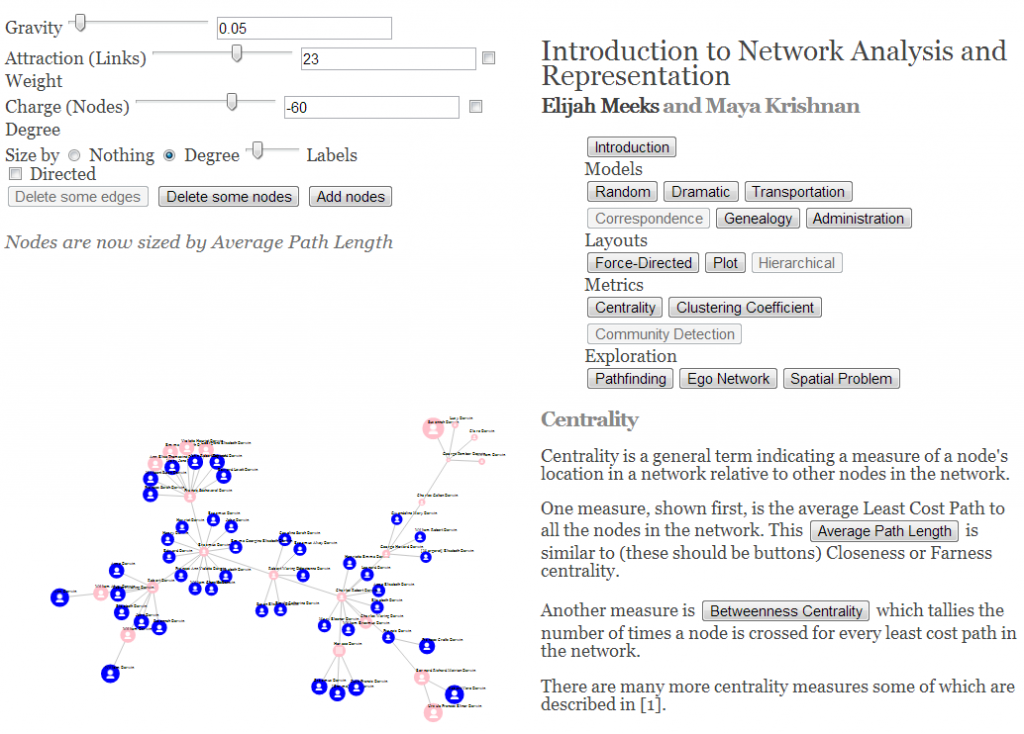In the coming weeks, I’ll be teaching several workshops on humanities network analysis and representation using Gephi:
- Here at Stanford for Hist 10W: Visualizing Evidence
- At UC Berkeley for the D-Lab
- At the University of Kansas along with a talk on networks in the humanities
These are invariably billed as “Gephi Workshops” but really they’re an introduction to networks, network analysis, and network visualization (I prefer “representation”) for humanities scholarship.
So, to better facilitate teaching folks about networks, I built this network toy using D3.js for all the information visualization bits. If you’re going to play with it, you should probably do so in Safari or Chrome, since it uses range sliders and SVG, which does not run so well in Firefox or Internet Explorer. It’s very rough, but I hope to get some feedback on it before these workshops, as well as provide anyone who might be taking these workshops or otherwise interested in the subject matter a chance to play with it.
I built this for three audiences, really. The first is the growing body of humanities scholars who feel that networks have something to do with understanding the phenomena they research. The second is the general public, who I think is becoming more and more exposed to and familiar with network visualization. The third audience was me. By building something like this in JavaScript, it forced me to better understand the metrics and principles of networks than I did by using out-of-the-box algorithms.
I want to iterate that this is very rough, and there are not only many missing pieces, but also likely to be issues with the implementations. I’ve tried to note when that’s the case, but I hope to extend this tool/toy as I have time and as I receive feedback.


Hi Elijah – Will any of these workshops be offered virtually? I’ve been experimenting with Gephi but could use some hands-on approaches from an expert. Thanks!
I’m afraid I haven’t put anything like that together, Anna, but there are many Gephi tutorials on-line and the community is quite friendly. I’ll be expanding the commentary and citations in this tool, including references to doing the same things in Gephi, and hopefully that will help folks to better understand not only networks in general but getting at them with tools like Gephi.
Awesome work, as usual.
Thanks, Clement! The biggest challenge, as I’m sure you know, isn’t in the coding, but in citing and explaining.